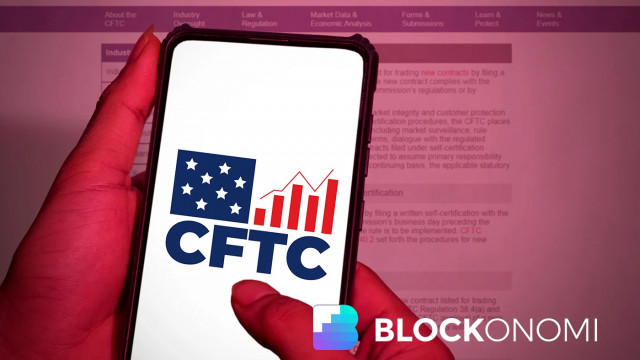
U.S. Lawmakers Unveil Crypto Market Structure Bill, CFTC Set to Lead Oversight
Blockonomigeneral
CFTC gains primary authority in new U.S. crypto market structure bill defining digital commodities
📋 Article Summary
U.S. Lawmakers Introduce Comprehensive Crypto Market Oversight Bill, Granting CFTC Primary Authority
In a significant development for the cryptocurrency industry, U.S. lawmakers have unveiled a groundbreaking bill that aims to establish a comprehensive regulatory framework for digital asset markets. The proposed legislation, dubbed the Digital Commodity Exchange Act (DCEA), seeks to empower the Commodity Futures Trading Commission (CFTC) as the primary regulatory authority overseeing the burgeoning crypto ecosystem.
The DCEA represents a pivotal shift in the regulatory landscape, as it moves to define digital assets as "digital commodities" rather than securities, a distinction that has long been a source of ambiguity and uncertainty for industry participants. By granting the CFTC primary oversight, the bill aims to streamline the regulatory process, providing much-needed clarity and stability for crypto businesses and investors.
One of the key provisions of the DCEA is the requirement for digital commodity exchanges to register with the CFTC, subjecting them to a comprehensive set of operational and compliance standards. This includes measures to ensure the protection of customer funds, robust risk management practices, and transparency in market data reporting. The bill also empowers the CFTC to take enforcement actions against any entities engaging in manipulative or fraudulent activities within the digital commodity markets.
The implications of the DCEA are far-reaching, as it signals a recognition by lawmakers of the growing significance of the cryptocurrency industry. By establishing the CFTC as the primary regulator, the bill seeks to foster a more predictable and stable environment for crypto businesses to operate, potentially attracting increased institutional investment and mainstream adoption.
However, the DCEA is not without its critics. Some industry experts have raised concerns about the potential for regulatory overlap, as the Securities and Exchange Commission (SEC) may still maintain a role in overseeing certain digital assets that are deemed securities. Additionally, there are questions about the bill's ability to keep pace with the rapidly evolving crypto landscape, as new technologies and use cases continue to emerge.
Despite these challenges, the introduction of the DCEA represents a significant step forward in the ongoing efforts to provide regulatory clarity for the cryptocurrency industry. As the bill moves through the legislative process, it will be crucial for lawmakers to engage in close collaboration with industry stakeholders to ensure the final legislation strikes the right balance between fostering innovation and protecting investors.
Looking ahead, the passage of the DCEA could pave the way for increased institutional participation in the crypto markets, as the enhanced regulatory oversight and defined market structure provide a level of comfort and legitimacy that many institutional investors have been seeking. Additionally, the increased regulatory clarity may encourage more traditional financial institutions to explore and integrate digital asset offerings, further accelerating the mainstream adoption of cryptocurrencies and blockchain technology.
Overall, the introduction of the Digital Commodity Exchange Act represents a significant milestone in the evolution of the crypto industry, as lawmakers seek to establish a comprehensive regulatory framework that can support the continued growth and development of this dynamic and rapidly evolving ecosystem.